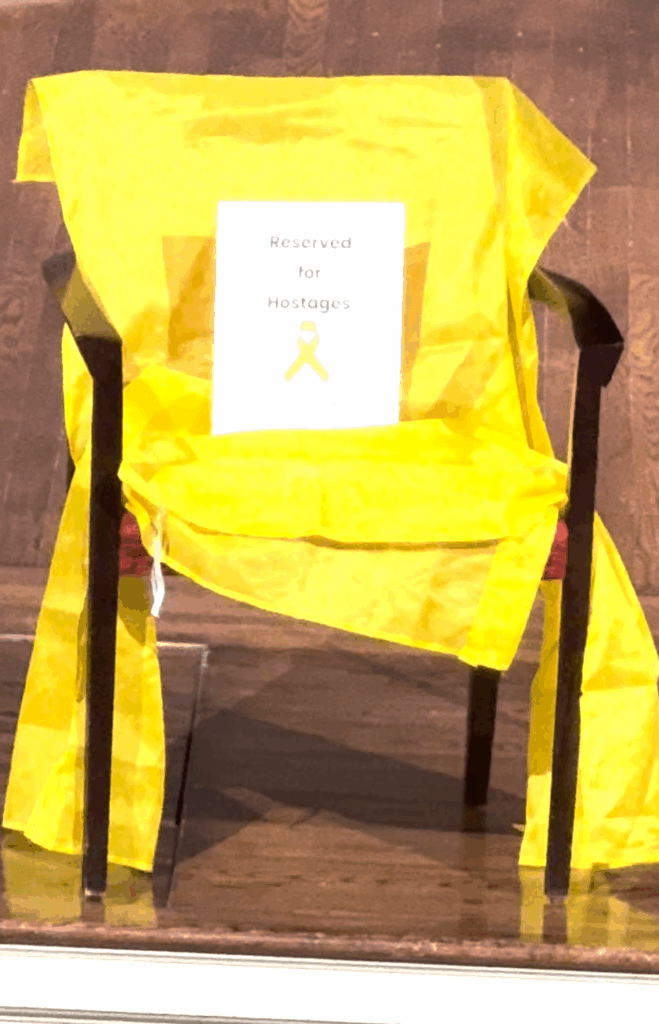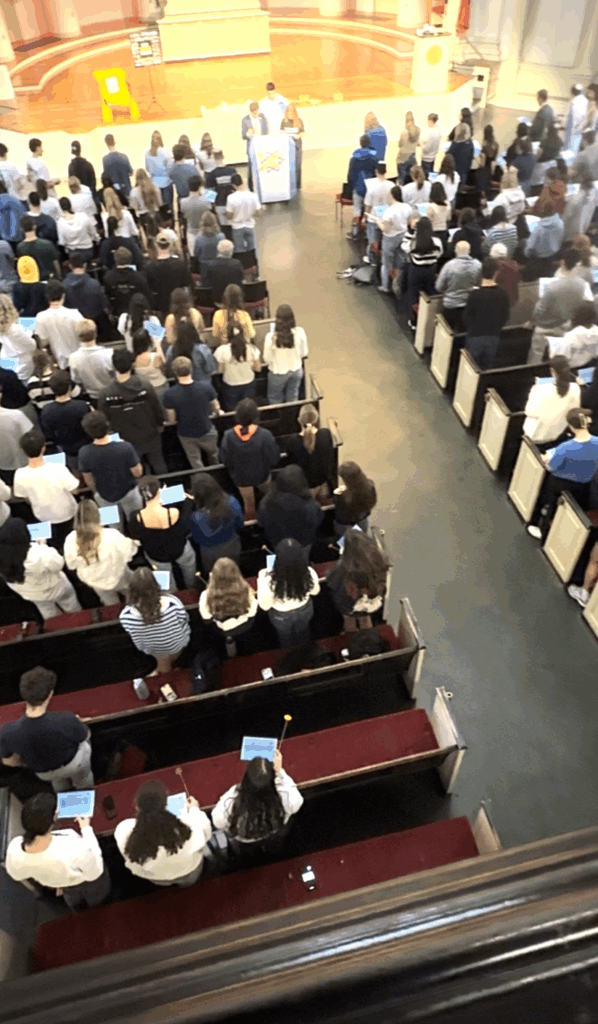
Syracuse, N.Y. (NCC News) – Students and faculty gathered at Syracuse University on Tuesday evening for a candlelight vigil marking two years since the Oct. 7, 2023, Hamas attacks on Israel. The attacks killed around 1,200 people and led to the ongoing war in Gaza. The vigil provided a moment of reflection and unity for a campus that is still dealing with antisemitism.
For Zachary Braiterman, professor of religion and Jewish studies at Syracuse University, the emotions from that day remain raw.
“Oh, just the range of shock that’s been fairly constant since October 7th [2023], ” Braiterman said. “A lot of grief, a lot of anger, a lot of sadness, moral disbelief, just that range of negative emotions.”
Dozens of students gathered at Hendricks Chapel to remember the lives lost and hope for the immediate release of the 48 hostages still in Gaza. Of the 48 hostages, only 20 are believed to still be alive. Since Oct. 7, 2023, thousands of innocent Israeli and Palestinian civilians have been killed in the ongoing war between Israel and Palestine. The continuing violence has fueled tensions across college campuses nationwide, including at Syracuse.

Antisemitism on Syracuse’s Campus
The vigil followed a recent antisemitic attack at the Zeta Beta Tau fraternity house, an incident that rattled Jewish students on campus. Tal Yechezkel, a student involved with the many Jewish organizations on campus, said the university’s response was strong and immediate.
“I think that how they’ve dealt with the incident that happened at ZBT, that’s one thing that I’m going to give credit where credit is due. They did a phenomenal job. They didn’t push it under the rug, and they spoke out about it.”
The vigil was hosted by Rabbi Natan Levy, the resident Rabbi of the Syracuse Chapter of Hillel. Several students told stories of their connections to Israel and the tragedy of Oct. 7. The Rabbi, adhering to the rules of the Jewish Holiday Sukkot, was unable to do an on-camera interview. The vigil concluded with the lighting of 48 candles for the remaining hostages.
Moving Forward with Hope
As the 48 candles slowly burned, the vigil ended not in sadness, but with a hope towards the future, and peace in the Middle East. Yechezkell said he hopes that the broader S.U. community walks away with one simple message.
“I think events like today really do show you the strength of the Jewish people. We’re not many people. We’ve never been a lot of people. We’re strong people…You’re always welcome here, Jewish or not. We’ve always been here, and we always will be.”
Video Transcription
Music: Hatikvah (Israeli National Anthem) sung by vigil attendees
Braiterman: “I think it’s important for students to come together and be with each other, particularly at these kinds of moments.”
Yechezkell: “I’ve been involved in all the Jewish organizations on campus for the past four years. I was involved with Hillel, Mishanu, SSI, Chabad — practically everybody — and I’m very proud and happy that I got to work with everybody and work together as one Jewish community.
“I think events like today really do show you the strength of the Jewish people. We’re not many people. We’ve never been a lot of people. We’re strong people, but everyone’s going to welcome you in with open arms. And that’s the beauty of it.
Braiterman: “But this is not a political event. This is a communal event of a certain kind of character. It doesn’t necessarily reflect the way I feel, but oftentimes that’s not how ritual works. Ritual is about creating emotions, not necessarily reflecting emotions.
Yechezkell: “SU, I think, has been pretty good at navigating the politics of the moment. It’s been, I think, a good place for Jewish students.”
